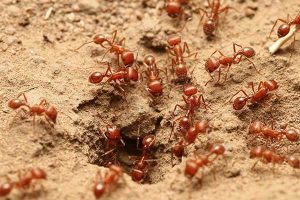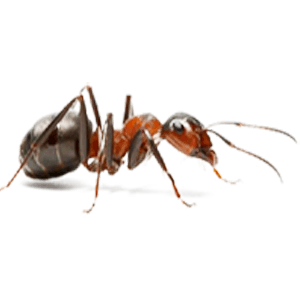How To Control Ants | Ants control and Pest control in Nairobi, Kenya
First of all, ants serve an important function out of doors. Ants aerate the soil, break down organic matter and control the population of other insects. So your goal should not be to destroy them altogether, just to control them and keep them out of your home.
There are several varieties of ants found in the United States, including argentine ants, fire ants and carpenter ants. With the exception of carpenter ants, most ants in the U.S. are dealt with in essentially the same way. Carpenter ants often require professional treatment and because of their destructive effect on structures, they should be controlled when discovered.

Ants establish colonies and they send out scouts to find resources (food and water). The scouts leave a scent trail enabling them to return to the colony with news of found resources.
Other members of the colony will follow the scent trails to collect resources and bring them back to the colony. Depending upon the variety of ant, colonies will also establish sub colonies near resources or they will send out queens to establish new independent colonies.
With argentine ants and some other varieties, you see heavily traveled trails as the ants make their way to and from the colony. Other varieties of ants look less like a traffic jam and more like the occasional strolling ant. In both cases they are following the scent trail layed down by members of their colony who passed by there before.
The Key to Controlling Ants is:
- Erase their scent trails
- Eliminate the food source
- Seal their entrance to your home
- Use natural and low-toxicity compounds to destroy colonies as necessary
Eliminate Ants Scent Trail

When you see scouts, kill them and wipe down the area. This important step will prevent major scent trails from being formed and will prevent the scout from reporting back to the colony about any found food.
Once a trail has already been established, start from the food source and wipe backwards to the trail entrance.
Use a sponge with soapy water. Plain water will not completely eliminate the trail.
If you cannot get the trail all the way to the entrance to your home, block the trail at the point you can get to.
They will seek a way around, but if you act quickly and are persistent, the ants will likely give up after anywhere from a day to a week.
Seal the Ants Entrance to Your Home
As temporary blockades for ants there a variety of things that will discourage ants. Ants will not cross vaseline or various sticky substances. Chili powder, cinnamon and boric acid are also avoided by ants. Block a trail entrance with any of these substances. For a more permanent blockade, seal cracks, holes and gaps with flexible caulk.
Eliminate the Food Source

Ants send out scouts to search for food, the scouts will wander endlessly and there seems to be an endless supply of scouts. Given time, ants will nearly always find any food in your home. Ants may seem disinterested in some foods, but it really depends on what the colony needs. Something ignored this time month may be their food of choice a month later.
To cut off the supply of food, place open foods into tightly sealed containers or store them in your refrigerator. Wipe down counters and sweep floors nightly. Clean cabinets, drawers and shelves to remove crumbs and stains. Ants also need water, so keep sinks and counters dry to discourage them. This is typically only a problem during the hot or dry seasons.
If ants are eating pet food from your pet’s bowl, create a moat around the bowl. To do this, place the food bowl into a pie tin or similar low pan and add soapy water to create a barrier around the bowl.
Natural and Less Toxic Control of Ant Colonies
Outside your house, ants favorite food is the honeydew created by a variety of insects such as aphids. By controlling honeydew producing insects and by choosing plants that are not popular with these insects, you will reduce the food supply for ant colonies.
Use of ant baits minimize the use of insecticides and so are preferable to sprays. However, baits can have the undesirable side effect of attracting new ants. Baits include a tasty attractant and a poison. The ants carry it back to the colony and in a few days the colony begins to die off. However, other colonies may send out scouts who discover the bait and then those far away colonies send workers to collect food. So baits are best used by placing them in the path of an ant trail and then remove the bait after the ant activity stops. Baits use different attractants, so if one doesn’t work, try another. Also, because ants tastes change depending upon the needs of the colony, a bait that did not work in the past may work now.
Use sticky barriers, such as Tanglefoot, to keep ants from traveling up trees and plants. Prune branches that touch your home, fences or that otherwise create a bridge for ants to cross.
Low toxicity compounds to control ants include boric acid and diatomaceous earth (DE). Other compounds may be equally safe, these are just two examples of natural compounds. Products which contain either of of these are fairly safe for your family and pets. Although, make certain that all other compounds used in the product are also safe. Be sure to read and follow all instructions for the use of any pest control product. Finally, another method of control is to pour boiling hot water into the entrance of a nest. Ants can survive under water, so boiling water is needed to kill them.
